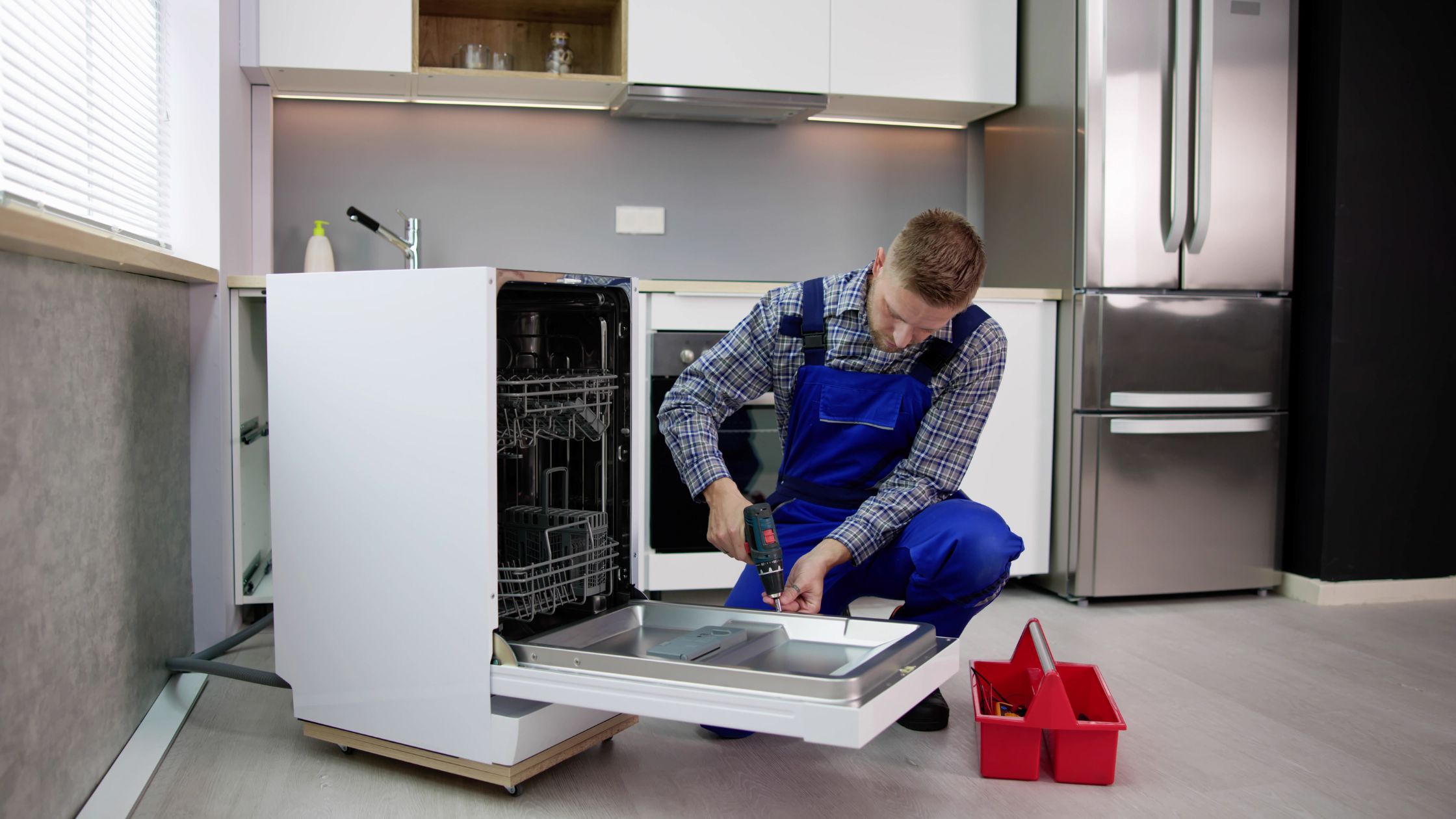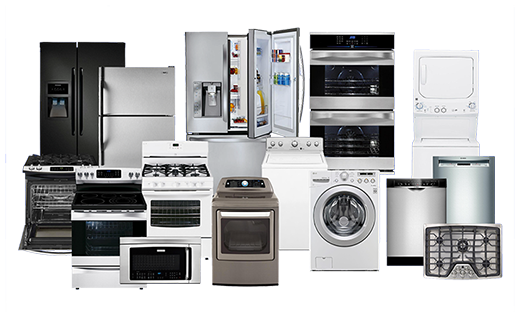The Ultimate Overview to Understanding Device Fixing in the house
When your fridge quits cooling or your stove rejects to heat, it can feel overwhelming. Recognizing appliance repair work in your home can conserve you money and time. You'll discover to acknowledge signs and symptoms, make use of essential devices, and adhere to a methodical troubleshooting procedure. Prior to you begin, there are critical security preventative measures you require to take into account. What are the most common problems, and exactly how can you repair them? Let's check out the fundamentals.
Common Home Appliance Issues and Their Signs
When your home appliances begin breaking down, it's important to recognize the indicators at an early stage. Neglecting them can result in bigger issues and expensive repair work. As an example, if your refrigerator isn't cooling down appropriately, you may discover warm places or condensation forming. This could indicate a failing compressor or a blocked vent.Your dishwasher may show troubles with dirty meals or uncommon sounds during cycles. If you listen to grinding or clanking, it's time to investigate.A cleaning maker that won't rotate or drain can leave you with soaked washing, recommending a stopped up drainpipe or a malfunctioning pump.Lastly, if your oven's temperature seems off or it takes permanently to pre-heat, you might be dealing with a defective thermostat. By remaining alert to these symptoms, you can resolve issues before they intensify into major repairs.
Essential Devices for Appliance Repair Service
When you're taking on device fixings in your home, having the right tools is necessary. Standard hand devices like screwdrivers and pliers will aid you dismantle and deal with numerous appliances, while electrical testing tools guarantee you're functioning securely with electrical wiring. Let's review what you need to start on your fixing journey.
Fundamental Hand Devices
Having the right tools is important for effective appliance repair work in the house. Begin with a trusted screwdriver collection, consisting of both flathead and Phillips types, as screws are usual in home appliance assembly. Pliers are additionally crucial; they aid with gripping, turning, and reducing wires or small components. A set of needle-nose pliers can reach limited places easily. You'll require a great adjustable wrench for tightening or loosening nuts and screws. An energy knife is useful for puncturing packaging or insulation. Finally, do not fail to remember a durable workbench or surface to safely arrange your tools and components. With these basic hand devices, you'll be well-prepared to deal with most home appliance repair work that come your means.
Electric Testing Gadgets
Together with fundamental hand tools, electrical screening tools play a necessary function in device repair work. These devices help you detect electric problems and warranty home appliances function securely. A multimeter is vital; it determines voltage, current, and resistance, allowing you to pinpoint issues rapidly. A non-contact voltage tester is an additional must-have, letting you detect online cables without making direct get in touch with, boosting your safety. Clamp meters are great for gauging existing flow in wires without detaching them, conserving you effort and time. Furthermore, circuit testers can quickly inspect if electrical outlets are functioning appropriately. By utilizing these devices, you'll simplify your troubleshooting procedure and boost your fixing abilities, making home appliance maintenance a great deal less complicated.
Step-by-Step Overview to Diagnosing Appliance Issues
When your home appliance breaks down, it can be irritating, but diagnosing the problem doesn't need to be overwhelming. You'll find out to determine common troubles and use effective troubleshooting strategies. Allow's go through the actions to obtain your home appliance back in working order.
Typical Home Appliance Troubles

Repairing Techniques Explained

Repairing Major Kitchen Area Home Appliances: A Closer Look
Have you ever wondered just how to take on typical problems with your kitchen area home appliances? Fixing significant kitchen area home appliances like fridges, ovens, and dish washers can be simpler than you assume. Start by determining the problem-- whether it's a refrigerator not cooling or a stove that won't warm. Often, a straightforward reset or examining the power source can resolve the issue.For refrigerators, clean the condenser coils and examine the door seals. If your stove's not heating, check the heating component and thermostat. Dishwashers may simply require a clean filter or a reset to obtain them back in activity. Constantly disconnect the device prior to diving into repair work to assure your safety.Don' t forget to speak with the user guidebook for specific fixing ideas connected to your design. With a little perseverance and the right tools, you can confidently deal with home appliance repairs and save cash in the process!

Fixing Washing Equipments: Tips and Techniques
When your washing home appliances begin breaking down, it can really feel frustrating, however repairing them doesn't need to be an inconvenience. Begin by checking the power supply. Confirm the appliance is plugged in and the outlet is functioning. Next, check the door or cover switch; a faulty switch can prevent the device from operating.For washing machines, if it's not rotating, examine for unbalanced tons. Rearranging the garments could address the concern. If your clothes dryer isn't home heating, tidy the dust filter and examine the air vent for blockages.Listen for unusual noises; they can indicate a trouble. If your appliance is dripping, examine the hoses for fractures or loosened connections. File any type of error codes presented on digital screens, as they can assist you in identifying the problem. Lastly, speak with the user handbook for specific troubleshooting tips associated to your design.
Safety And Security Preventative Measures to Take During Repairs
Prior to you begin any type of appliance fixings, it's necessary to prioritize safety to stop accidents or injuries. Unplug the home appliance or turn off the circuit breaker to assure no power reaches it while you work. Use insulated tools to reduce the risk of electric shock. Put on safety and security goggles and gloves to safeguard yourself from sharp edges or debris (Dependable Refrigeration & Appliance Repair Service Washer repair near me).Make certain your office is tidy and well-lit, so you can see what you're doing. Keep kids and family pets far from the area to prevent distractions and prospective dangers. If you're dealing with gas home appliances, be additional cautious; check for leakages before proceeding.Take your time, and don't rush through repair services. If you really feel unclear about any action, it's much better to stop and study than to guess. Following these safety measures will certainly aid produce a much safer environment for your do it yourself appliance fixing job
When to Call a Professional for Help
Exactly how do you understand if it's time to employ a specialist for home appliance repair services? If you've attempted fundamental troubleshooting without success, it's a clear indicator. For example, if your device still won't start or shows unusual noises after resetting it, do not wait to seek specialist help.When you see leaks, smoke, or shedding smells, focus on safety and call a pro immediately. These issues can cause more substantial damage or pose risks to your home.Also, if your appliance is under service warranty, contacting a professional is usually the most effective course. They can guarantee that repair work will not invalidate your guarantee, saving you cash in the long run.Finally, if you're unsure or awkward with complex fixings, it's wise to leave it to the experts. Bear in mind, dealing with complicated issues without the ideal competence can lead to pricey errors. Count on a specialist when in question!
Regularly Asked Concerns
How Can I Protect Against Device Troubles in the Future?
To avoid home appliance troubles in the future, you ought to do regular upkeep, check for wear and tear, tidy filters, and avoid overloading. Staying aggressive will certainly help prolong their life-span and keep them running smoothly.
What Are one of the most Common Do It Yourself Device Repair Mistakes?
You may ignore safety preventative measures, skip check here fixing steps, or use inaccurate devices when attempting DIY home appliance repairs. Rushing the process or overlooking manufacturer standards can lead to even more significant issues and costly mistakes. Stay patient and educated!
How Do I Know if a Component Requirements Substitute?
You can tell if a part needs replacement by checking for unusual sounds, leakages, or irregular efficiency. If the device struggles to operate appropriately or reveals noticeable damage, it's likely time for a replacement.
Can I Use Generic Parts for Appliance Repair Works?
Yes, you can use generic components for home appliance fixings, however establish they work - Dependable Refrigeration & Appliance Repair Service Washer repair near me. Generic components may save you money, yet they might impact performance or longevity, so evaluate your alternatives meticulously before choosing
What Service Warranties Cover Appliance Repair Works?
The majority of appliance service warranties cover fixings for producing issues, however they typically exclude damages from abuse. Examine your guarantee terms meticulously, as some may need making use of licensed technicians and original parts for coverage to continue to be valid.
Comments on “Fixing Temperature Issues – Lg Dryer repair near me Dependable Refrigeration & Appliance Repair Service”